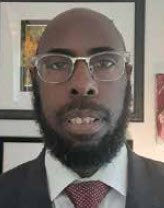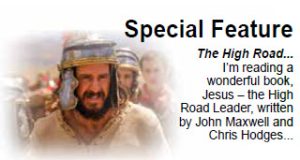 By: Eric Betts
By: Eric Betts
In a world where every nuance of leadership is parsed and magnified, the poised response of mature leaders to criticism serves as a beacon for dynamic team-building and effective management. This strategy, far from showcasing vulnerability, illuminates a path to resilience and collective responsibility—a leadership ethos that turns feedback into a constructive fulcrum for organizational triumph.
Consider the fortitude of media titan Oprah Winfrey, who with aplomb extends a welcome mat to constructive criticism, seeing it as a crucible for personal evolution. Her ethos—that feedback refines rather than tarnishes—is a testament to her stature as an archetype of visionary leadership. Similarly, the late Maya Angelou, with the grace of a seasoned poet, perceived critique as a gift—an invitation to grow and adapt—whether in the face of personal or professional adversities.
The entrepreneurial realm boasts figures like Elon Musk, who, undeterred by the cacophony of global scrutiny, sifts through criticism for nuggets of insight that propel technological advancement. Meanwhile, Ursula Burns of Xerox fame, wove a tapestry of inclusivity and innovation by fostering an environment where critique was synonymous with opportunity rather than dissent.
Bishop T.D. Jakes echoes this sentiment from a spiritual perspective. He cultivates self-reflection and growth through feedback, nurturing not only individual growth but fostering a community where every voice contributes to collective progress. Those who are open to criticism, but often receive untrue accusations and critique based on incorrect assumptions, should remember one of his notable quotes is: “When you are a giraffe and you receive criticism from turtles, they are reporting the view from the level they are on.”
This powerful metaphor encourages us to consider the source of criticism and recognize that not all viewpoints hold equal weight. Jakes emphasizes that our perspective matters, and we should focus on growth rather than being hindered by negative feedback.
The adoption of a non-defensive leadership stance is more than just the relinquishing of ego; it is an active strategy that reaps tangible organizational rewards. The ensuing symphony of open discourse bolsters a foundation of trust. It signals that leadership beckons not just compliance, but genuine engagement, nurturing an atmosphere ripe for innovation and unrestrained creative expression.
The benefits of such leadership cascade through the tiers of an organization. Team morale is invigorated as every contribution gains respect and consideration. This enhances productivity and fuels a continuous cycle of improvement and performance excellence. Tension dissolves, replaced by a congruence of effort and ambition. Leaders steeped in emotional intelligence emerge from this alchemy—stewards who, having mastered the alacrity to accept and learn from critique, illustrate the profound ability to steer their ship through tempests of challenge with finesse.
Contrastingly, a leadership beset by defensiveness casts a shadow of fragility over its enterprise. Rather than exuding strength, it engenders a tumultuous cycle of conflicts, curtails the honesty of discourse, and anchors an organization to a stasis of insularity. The adverse results are manifold—stemming creativity, retarding growth, and sowing discord.
The consummate leader does not cast feedback into the wind; instead, it is transmuted to the very rungs upon which higher organizational acumen is reached. These leaders, unflinching in the face of critique, exemplify that feedback, far from a detraction, is the marrow of mature leadership, sustaining a culture where voices are not just heard but become the very sinew of a resilient, adaptable, and progressive entity.
In a virtuosic display of executive poise, the sagacious leader understands that to invite critique is to endorse a diversity of thought, to empower the individual, and to crystallize an impassioned and dedicated workforce. It is a powerful declaration that in the pursuit of excellence, every perspective holds value.
By: Eric Betts, Assistant Professor | Course Developer, Hampton University School of Religion









 June 20, 2025
June 20, 2025



